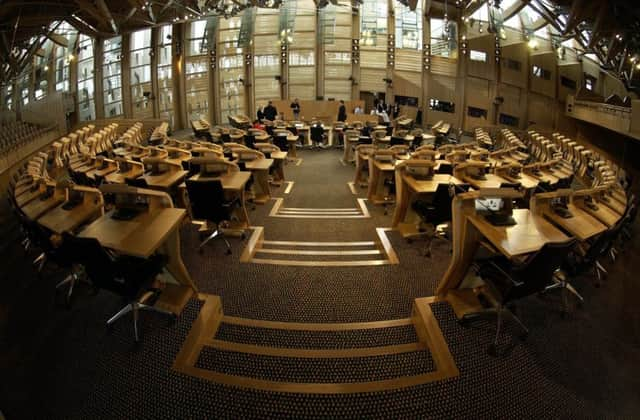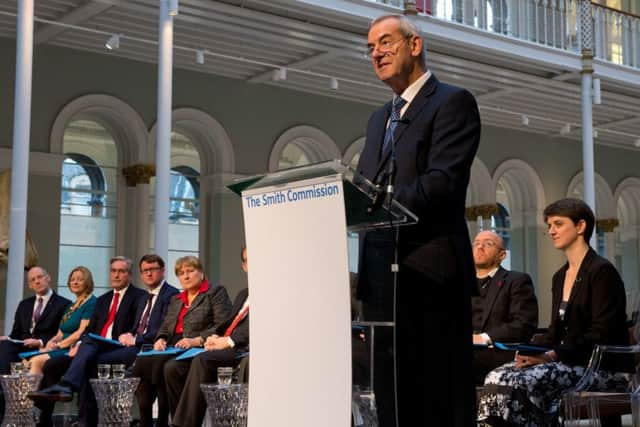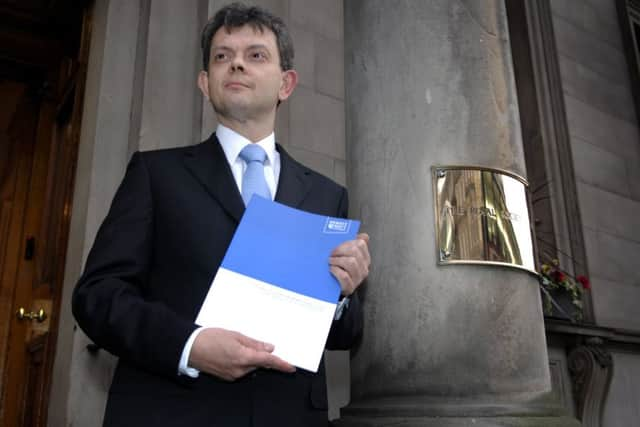What powers has the Scottish Parliament gained since 2007?


The same legislation, which enacted the recommendations of the 2014 Smith Commission, has already resulted in Scottish ministers being given responsibility for areas such as income tax and welfare policy.
Ministers at Holyrood now have authority to legislate for the granting and regulation of licences to search and bore for petroleum. David Mundell hailed it as the latest in “significant new powers” to go to the Scottish Parliament.
Advertisement
Hide AdAdvertisement
Hide AdBut the issue of devolved powers, always a sensitive subject, has become especially potent in the wake of Brexit. Shortly before Christmas a coalition of 80 civil groups described Brexit legislation as an “attack on the principles of devolution”.


Cabinet Office minister David Lidington responded that devolved nations would end up with greater powers at the end of the Brexit process. SNP ministers are not so sure. Agriculture and fisheries policies currently set by Brussels remain sticking points.
Since its establishment in 1999, devolution has largely been a one-way street in terms of powers being transferred from Westminster to the Scottish Parliament. Brexit is the first major event to shake his presumption.
Post-2007 and Calman


By the time the SNP formed its first administration in 2007 it was obvious that elements of the still young Scottish Parliament were ripe for reform. Holyrood funding was a frequent criticism - with ministers handed a block grant from the treasury, rather than setting taxes.
The ball was rolling by December 2007 when opposition MSPs led by Labour backed the creation of a commission on devolution. Known as the Calman Commission, after its chairman, Sir Kenneth Calman, its terms of reference included improving “financial accountability”.
The Scottish Government later described the commision as a flawed “messy fudge” because it failed to consider options for Scotland outwith the current constitutional framework.
Nevertheless, the commission’s 2009 report was the basis for the Scotland Act 2012. This handed the Scottish Government the ability pay for capital projects such as roads, hospitals or schools by issuing bonds for the first time. It also permitted borrowing from the National Loans Fund and commercial loans, up to a limit of £2.2 billion.


Perhaps most significantly, Holyrood gained the ability to raise or lower income tax by 10p in the pound - as long as any change was applied equally across all tax bands.
Onwards to Smith
Advertisement
Hide AdAdvertisement
Hide AdShortly before her election as Scottish Conservative leader in 2011, Ruth Davidson famously pledged a “line in the sand” over new powers for Holyrood. Her then leadership opponent, Murdo Fraser, had floated the idea of backing more financial powers for the parliament. “The Scotland Bill currently going through Westminster is the line in the sand,” she responded. “The time for arguing about the powers the people want is over. It’s time now to use the powers that we have.”
But by 2013 the Scottish Tories were debating handing further powers to the parliament - which party grandee Michael Forsyth dubbed a “suicide mission”.


The 2014 referendum on independence focused the minds of the Unionist parties, who found themselves under pressure to set out their plans for further devolution if Scots voted No.
Following the vote in September 2014, then prime minister David Cameron announced the creation of Smith Commission to “convene cross-party talks and facilitate an inclusive engagement process across Scotland to produce, by 30 November 2014, Heads of Agreement with recommendations for further devolution of powers to the Scottish Parliament”.
This act was said to have fufilled the controversial “Vow” signed by Unionist party leaders in the days before the referendum, promising more powers for Holyrood if Scotland voted to retain its place in the UK.
Smith results and the 2016 Scotland Act
The commission received 14,000 emails and letters from the public and a further 250 contributions from groups. On November 27, 2014, following tense talks involving the four main parties, the commission published its report.
It called for the Scottish Parliament to have complete power to set income tax rates and bands, to receive a proportion of the VAT raised in Scotland - amounting to the first ten percentage points of the standard rate - as well as receiving increased borrowing powers to support capital investment and ensure budgetary stability.
“The fruits of Smith’s labours, and those of the negotiators acting on behalf of their parties, is a package of powers that will define the next stage of Scotland’s constitutional journey,” The Scotsman reported at the time.
Advertisement
Hide AdAdvertisement
Hide AdThe pro-Union parties hailed the package as one that will give Scotland one of the most powerful devolved parliaments in the world.
The future
Brexit is a second gamechanger in how power is devolved from the centre, with the final outcome uncertain.
The Scottish Government is actively urging Westminster to hand over powers on immigration. It has argued that a steep drop in immigration to the UK could have a disproportionate impact on Scotland - and see its population fall in the long-term as a result.
Many key sectors north of the border - tourism and hospitality in particular - heavily rely on migrant workers.
